It’s May, and that means spring weather, flowers, and celebrating Moms. As brunch is a popular way to celebrate Mom, we thought we would share a brunch dish straight out of railroad history for this month’s posting.
A common option that appears in dining car breakfast menus in the early to mid-20th century is shirred eggs. If you’re like me, you’ve never heard of shirred eggs until now… A simple, yet elegant way to serve eggs, “shirred” refers to a type of ceramic or cast iron dish, or shirrer, in which the eggs were baked. While cooks can bake the eggs to any desired firmness, the goal is to get a relatively firm egg white, with a delightfully runny yolk. The dish itself is usually shallow and flat-bottomed with two handles or “ears.” Additionally, with the presentation in an individual dish for the diner, it adds an air of sophistication not experienced with scrambled or otherwise fried eggs.
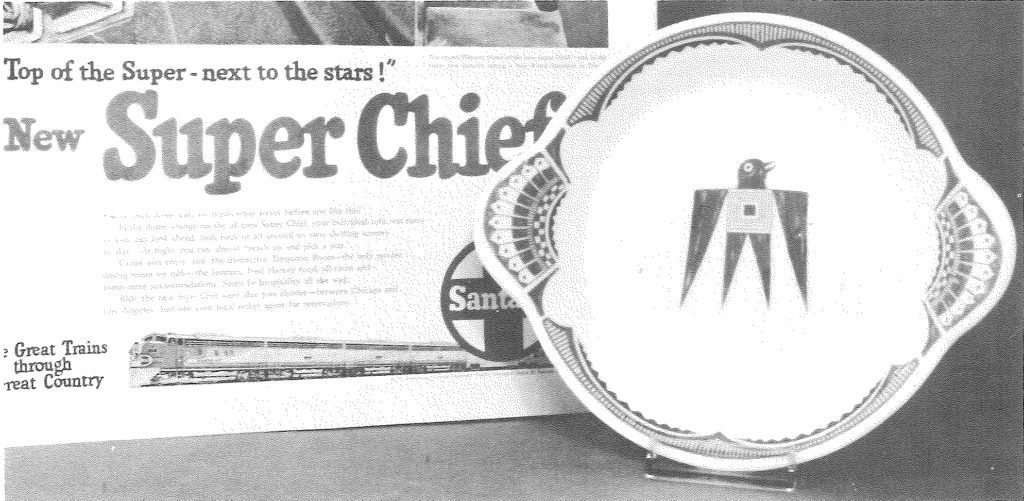
Figure 2 Ceramic dishes known as “shirred egg” dishes usually have flat bottoms and two small handles for removing safely from the oven. Photo from Mimbres to Mimbreño, A Study of Santa Fe’s Famous China Pattern by Richard W. Luckin.
It’s no wonder, then, that railroad dining cars served shirred eggs on their breakfast menus. Eggs are so tremendously versatile, and their preparation can be as unique as the person consuming them. There are all the variations of fried eggs, such as over easy, sunny side up, over medium, etc.; and then there are poached, basted, hard-boiled, soft boiled—the list goes on! This variety is partially what makes the egg such a popular breakfast item, and undoubtedly made railroad dining car menus more popular, in turn, by offering numerous methods of egg preparation.
The popularity of shirred eggs seems to stem from the Victorian era, and then there was a resurgence in popularity after the Second World War, when housewives got into serious entertaining at home. One of the reasons for the popularity of shirred eggs is their easy preparation—just crack and bake—so they are very “hands-off” to prepare while ensuring other dishes come out in a timely manner. Another reason for the popularity is the versatility of the dish, as cooks can add all sorts of mix-ins from vegetables to meats and all manner of spices.
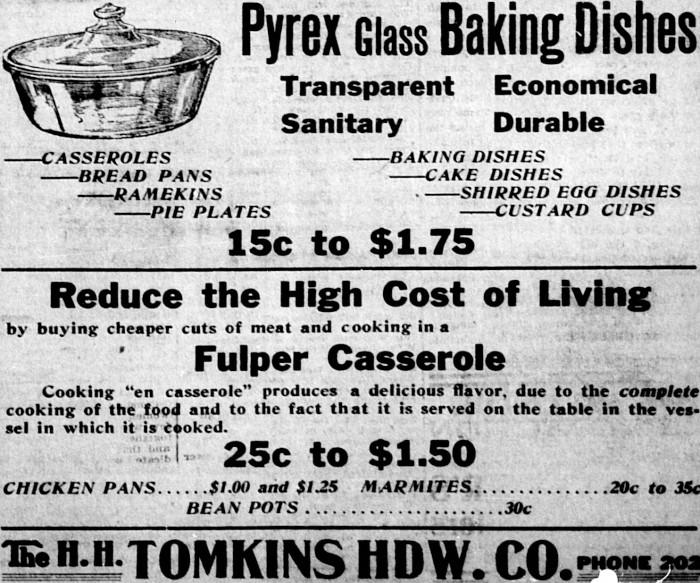
Figure 3 March, 1917 issue of The Herald Democrat, a Lake County, Colorado newspaper. From the online database www.coloradohistoricnewspapers.org.
A search of Colorado’s historic newspapers also brings up many advertisements for shirred egg dishes from Pyrex and other ceramic and glass dish manufacturers. These advertisements seem to be concentrated around World War I.
Consequently, shirred eggs appear as an option on dining car menus starting around 1900, as seen in the following menus from the Colorado Railroad Museum collection. From the Denver & Rio Grande to the Atchison, Topeka & Santa Fe, to the later California Zephyr, they remain fairly popular. For unknown reasons, as the 1960s approached, the appearance of shirred eggs on the menu tends to wane.
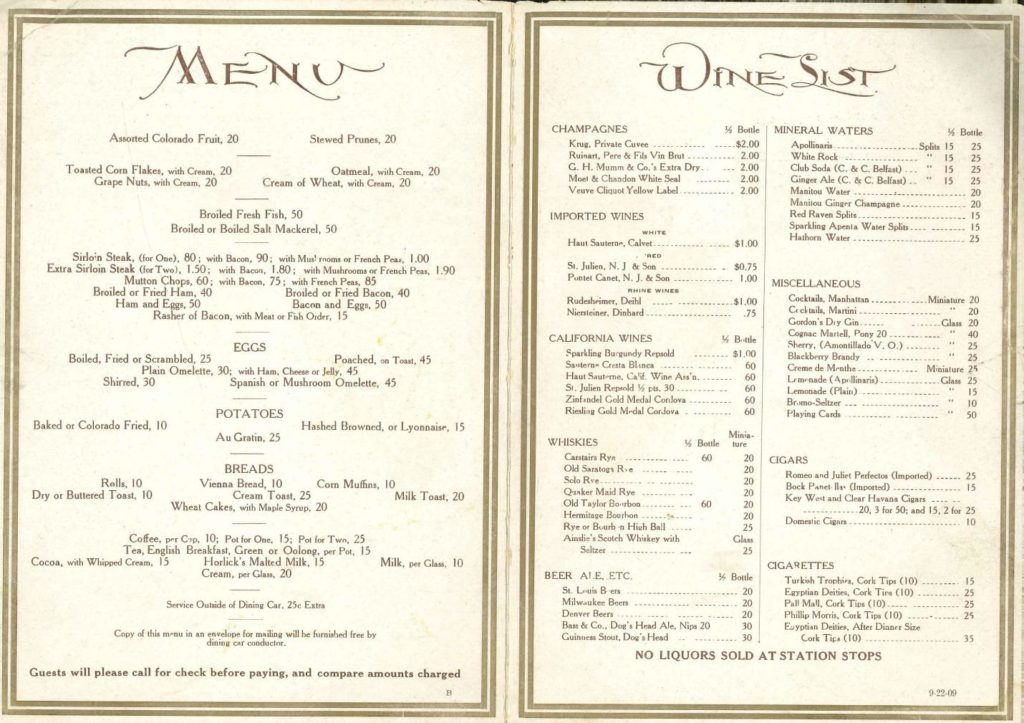
Figure 4 1909 Denver & Rio Grande dining car menu featuring shirred eggs. Colorado Railroad Museum collection.
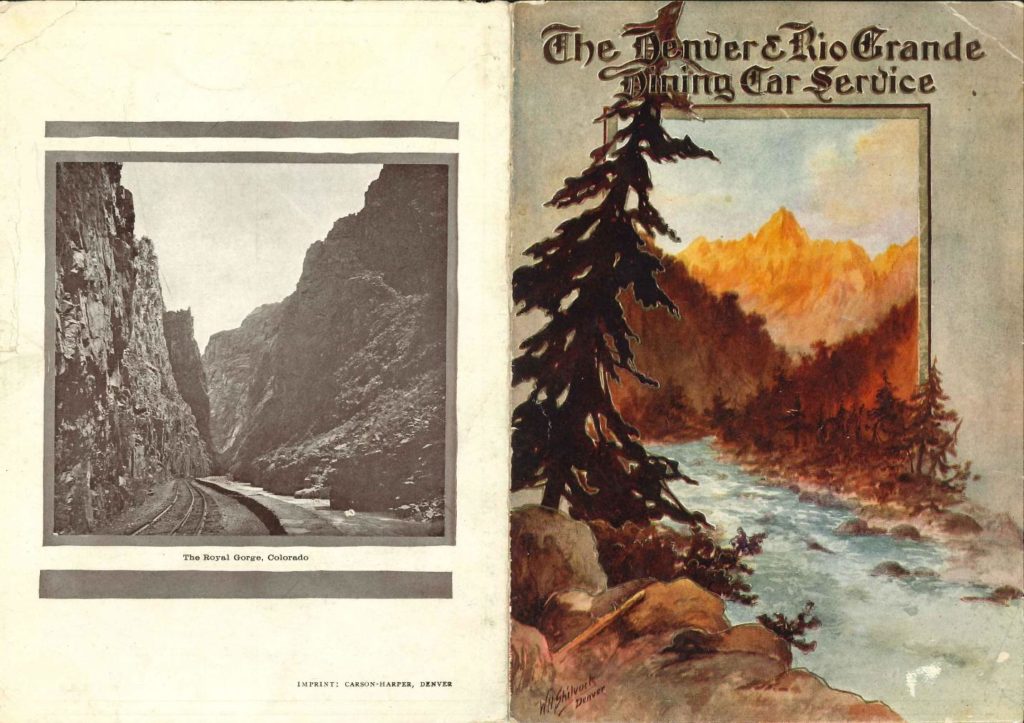
Figure 5 Cover of the 1909 Denver & Rio Grande dining car menu from Figure 4. Colorado Railroad Museum collection.
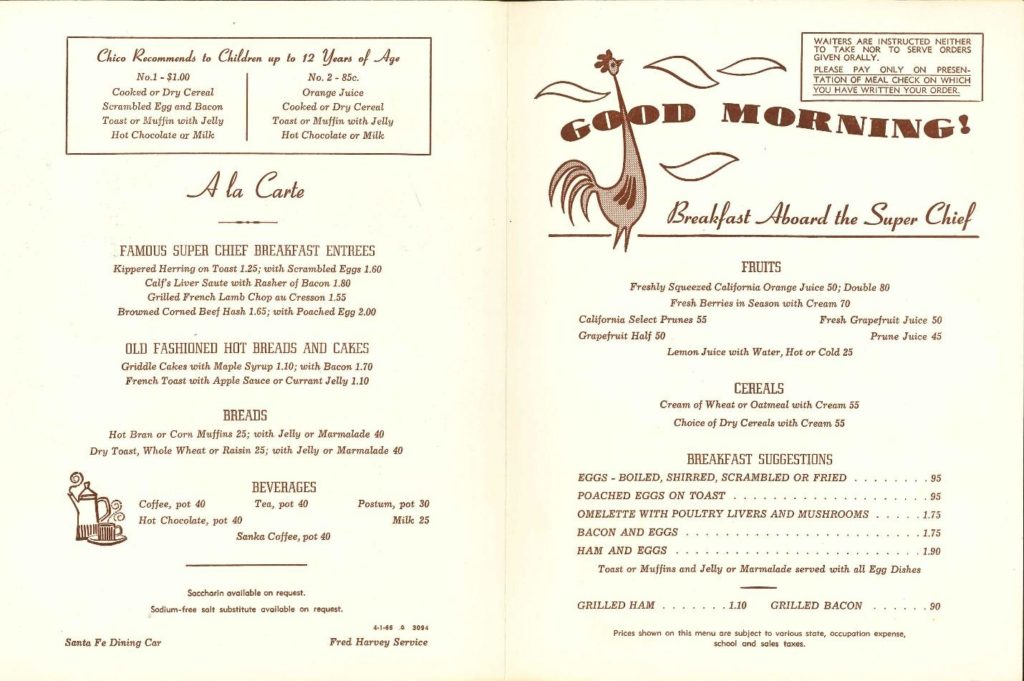
Figure 9 1966 Atchison, Topeka & Santa Fe menu featuring shirred eggs. Colorado Railroad Museum collection.
In addition to our dining car menu collection, we have an extensive dining car china collection. However, we have no shirred egg chinaware. A thorough internet search yielded very few shirred egg dishes available to collect today amongst dining car china. According to the book Dining a la Pullman: The History of Pullman Dining Service, 1866-1968 by Mulligan, Tilp, and Zimmerman, the shirred egg dishes, at least in the “Indian Tree” pattern for Pullman, were phased out in the 1930s.
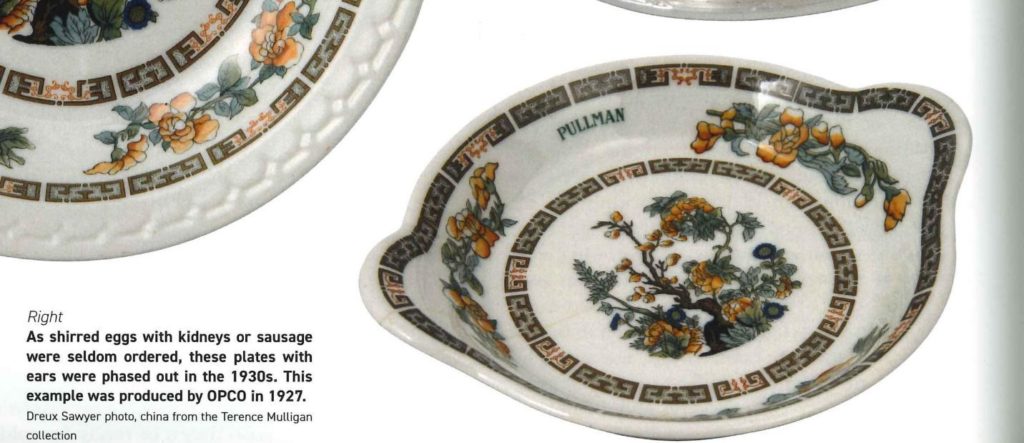
“Indian Tree patterned Pullman shirred egg dish. From Dining a la Pullman:The History of Pullman Dining Service, 1866-1968, by Terence Mulligan, Peter Tilp, and Karl Zimmerman.”
We also have a small collection of dining car cookbooks at the museum, however only the following cookbook from the Southern Pacific features a recipe for shirred eggs. Even then the recipe merely says “bake in oven as desired.”
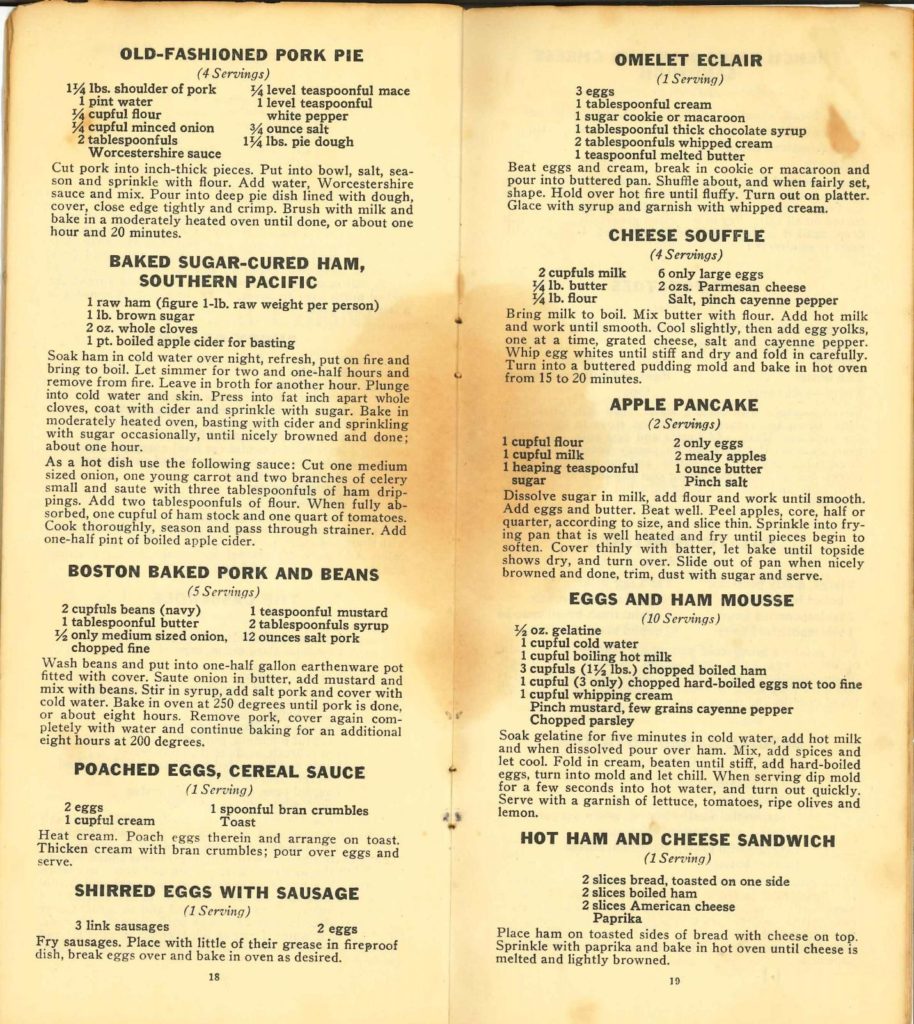
Figure 11 Shirred egg recipe from the cookbook Our Dining Car Recipes, produced by the Southern Pacific. Colorado Railroad Museum collection.
So, how do you like your eggs? We hope you’ve enjoyed our brief exploration of shirred eggs and our showcase of dining car menus. We have included a more in-depth recipe from Sunset magazine for you to try at home. If you try making shirred eggs, please let us know how it tastes via our Facebook, Instagram, or Twitter pages, or leave a comment, below.
Shirred Eggs
Ingredients
1/4 teaspoon butter
2 teaspoons heavy whipping cream
2 eggs
Salt
Freshly ground black pepper
1 teaspoon minced chives
1 tablespoon grated hard cheese, such as parmesan
How to Make It
Preheat oven to 375°.
Coat a 6-oz. ramekin with butter. Pour whipping cream into ramekin.
Crack eggs into ramekin, coaxing yolks toward the center, using a spoon if necessary.
Sprinkle eggs with salt and pepper, top with chives, then cheese.
Bake until set around edges and still a bit jiggly in the center, about 12 minutes. (For firm yolks, bake an additional 3 minutes.) Let sit 2 to 3 minutes to set and serve immediately.
Past Dining on the Rails Posts:
Dining on the Rails: April 2022 – How about a nice Old Fashioned?
Dining on the Rails: March 2022 – French Toast, Anyone?
Dining on the Rails: February 2022 – A Chocolatey Valentine’s Treat!
Dining on the Rails: January 2022 – Western Pacific Pork Tenderloin
Dining on the Rails: December 2021 – Cranberry Sauce
Dining on the Rails: November 2021 – Oyster Stuffing!
Dining on the Rails: October 2021 – Chicken Pot Pie
Dining on the Rails: September 2021 – Chili
Dining on the Rails: August 2021 – Pullman “Tom Collins” Cocktail
Dining on the Rails: June – How about a salad?
Dining on the Rails – Atchison, Topeka & Santa Fe Ham!
Dining on the Rails: CRI&P’s New England Boiled Dinner
Dining on the Rails: A Sweet Treat for your Valentine!
Dining on the Rails: Black Eyed Peas!
Dining on the Rails: Eggnog
Dining on the Rails: Happy Thanksgiving!
Dining on the Rails: Union Pacific Apple Pie
Dining on the Rails, August 2020
Dining on the Rails, July 2020
Dining on the Rails, June 14, 2020
Dining on the Rails, June 7, 2020
Dining on the Rails, May 31, 2020
Dining on the Rails, May 24, 2020
Dining on the Rails, May 17, 2020
Dining on the Rails, May 10, 2020
Dining on the Rails, May 3, 2020
Dining on the Rails, April 26, 2020
Dining on the Rails, April 19, 2020
Dining on the Rails, April 12, 2020

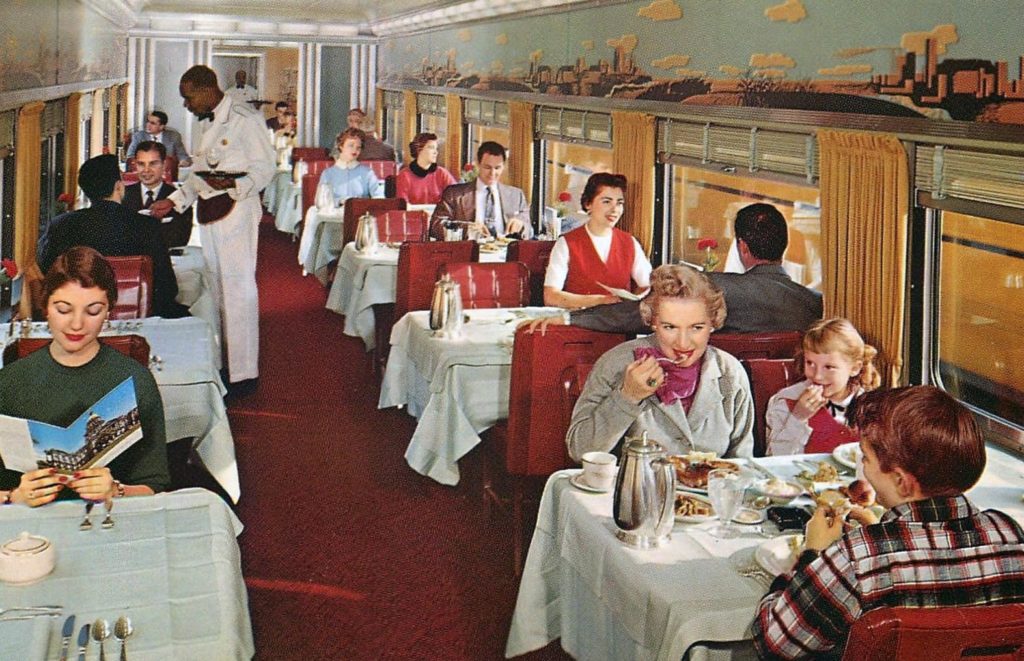
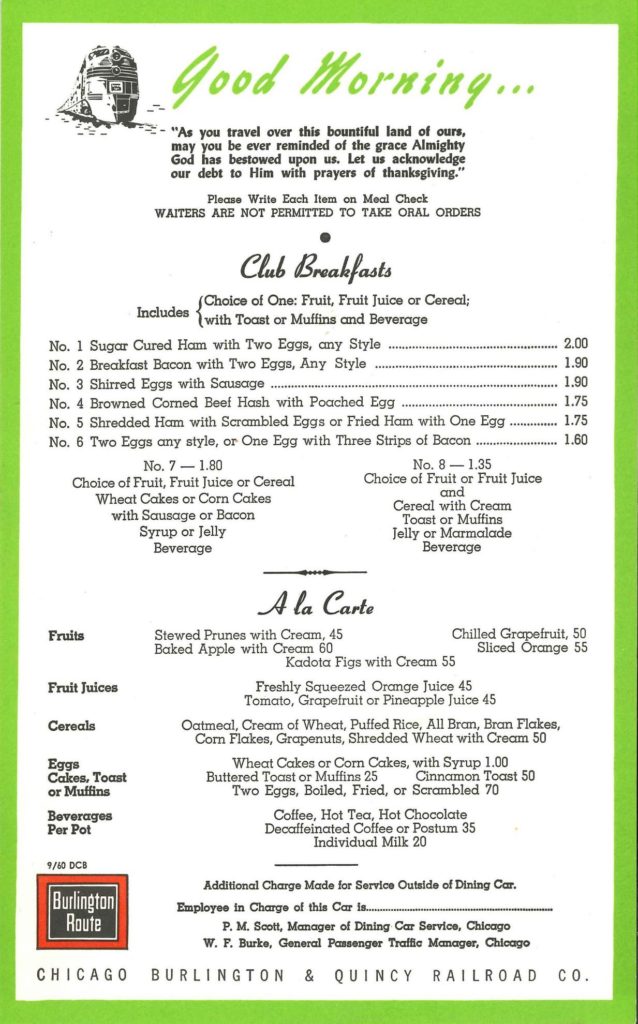
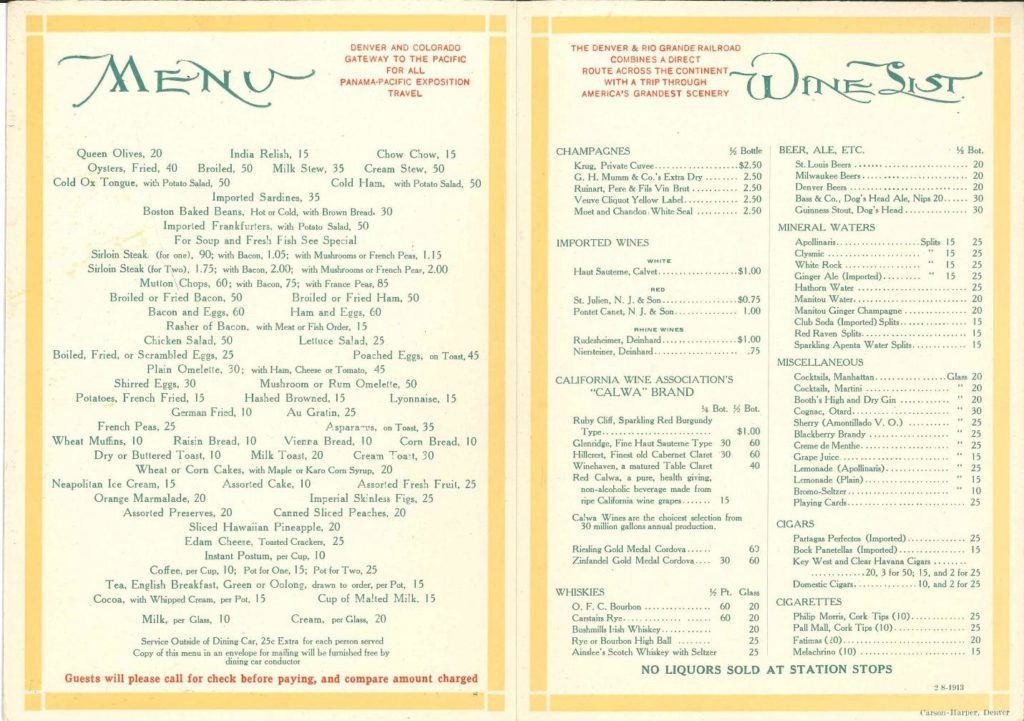
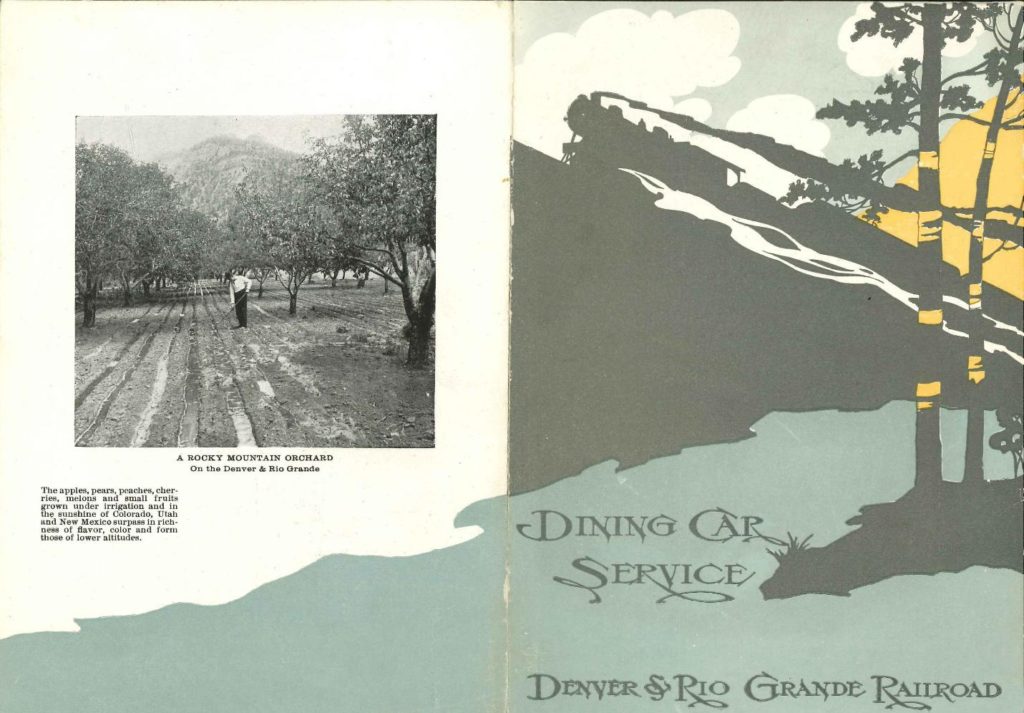
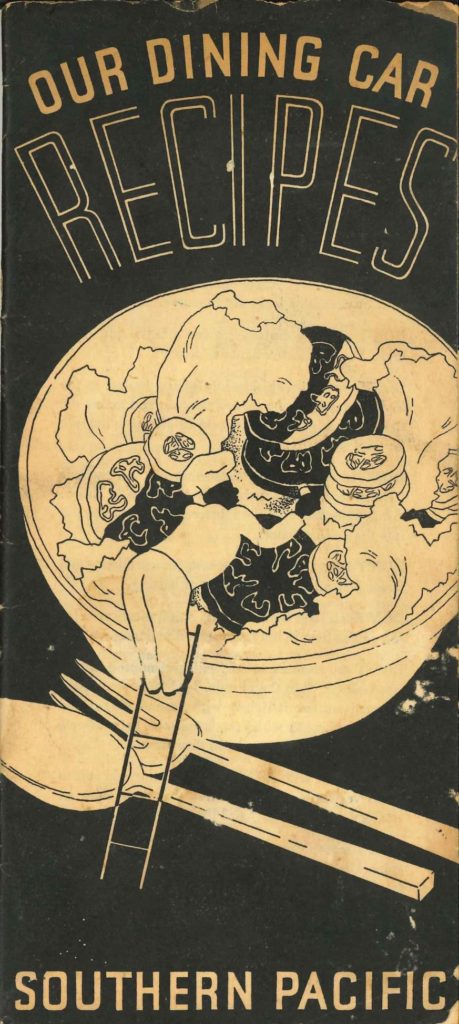



I love these posts!
Looks tasty!